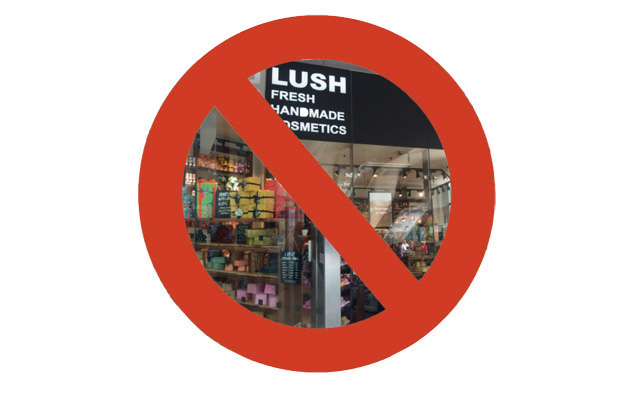Are you funding anti-hunting organisations by shopping with their donors? Tim Bonner names companies that fund antis
Are you funding the antis? If you love your hunting, shooting and fishing then you need to be careful where you shop. For any member of the rural community this Christmas, where we spend our money can have far reaching implications. Will where you buy your turkey make a difference as to whether there is a Boxing Day meet next year?
The argument is obviously not that simplistic, but consumers should understand the ethics and policies of the retailers where they spend their money. And decide if they agree with them. If not the answer is simple. Shop elsewhere.
From simple decisions such as which supermarket to patronise to which car to buy or where to bank. Be sure that you are not inadvertantly funding the antis.
The rural community has serious financial clout, and by choosing where we spend our money we can make a conscious decision to help to sustain our way of life. It would be foolish not to. Be sure to spend wisely this Christmas.
ARE YOU FUNDING THE ANTIS?
Seven years ago, a call came in from a Master of Foxhounds in the north while I was in the Countryside Alliance press office. “I’ve had a letter from our local Land Rover dealer,” he said. “It says that he isn’t allowed to sponsor our point-to-point anymore because Land Rover has told all its dealers they can’t have anything to do with hunting.”
In the midst of the hunting debate this was rocket fuel, so I was on the phone to a Telegraph journalist in a flash. He was equally excited until, that is, he made a call to the Land Rover press office. I have been involved in a few big stories but never have I known a single call create quite such a reaction. Land Rover immediately rolled out the full corporate crisis-management plan.
The journalist was bombarded with assurances and documents confirming that no instruction from Land Rover had ever been given about hunting, and the dealership was hauled over the coals and was issuing apologies and retractions within the hour.
The Alliance’s chairman, chief executive and board members received calls from corporate PR contacts assuring them that there was no truth in the story and promising Land Rover’s undying love. The story did not stand up, someone else got the front page, but we learnt a valuable lesson: the rural community has serious commercial clout. Land Rover was simply terrified at the thought of alienating the countryside and driving us into the arms of its rivals.
THE POWER OF BOYCOTTING
Strangely, it is the environmental and animal-rights movement and antis, rather than ourselves, that has attempted to use commercial pressure in the past. The boycott is a staple tactic of extremist campaigns, but their levels of support and commercial impact are nothing compared to those who support rural activities, as Land Rover was aware.
So the question is: how do we use that influence to the benefit of our campaigns?
Quite simply, we should not be spending any of our hard-earned cash with those companies that openly support animal-rights organisations and the antis cause.
Top of that list is the cosmetics firm Lush. At the behest of its owner, Mark Constantine, Lush gives money to a range of animal-rights organisations, including the Hunt Saboteurs Association for which it created a particularly revolting soap scented with citronella, the substance hunt sabs use to destroy temporarily hounds’ sense of smell.
If you are in the market for a new hi-fi or flat-screen TV avoid high street and online retailer Richer Sounds like the plague. Owner Julian Richer has long supported the League Against Cruel Sports, of which he was a council member, and he is now a vice-president of the RSPCA. Richer’s support for animal-rights organisations does not, however, stop him owning racehorses, which must get a mixed reception from some of his colleagues.
Then there is the Co-operative Group. Most of us have long known about the Co-op’s stance on hunting and have avoided its shops. The Co-operative Bank is especially bigoted and in 2008 withdrew banking facilities for a riding centre in Berkshire that permitted a hunt to use its land on the basis that the hunt had failed to take steps to ensure foxes would not be hunted. It even has a written policy not to invest in organisations involved in “the use of ferrets to catch rabbits”.
BE AWARE AND VOTE WITH YOUR WALLET
But you could, unwittingly, be doing business with the Co-op. In 2009, the Blencathra hunt was surprised to be contacted by its local branch of the Britannia Building Society and told it would have to close a Hunt Supporters Club account. The Britannia had merged with the Co-operative Bank, which had imposed its “ethical” policy of not providing banking for “bloodsports” organisations. The Co-op also owns Cleveland Finance and internet bank Smile.co.uk.
It has extensive interests in the travel industry through the Bourne Travel Group (not Bourne Leisure), Manchester Airport Travel and even a holding in Thomas Cook. The Co-op owns Somerfield Stores as well as its own branded shops, but most of all you must be careful not to let the Co-op profit from your death. Co-operative Funeralcare is one of the biggest undertakers in the country but also owns a dozen or more others, including Fairways, Anglia and Browns funerals. In fact, it is worth asking any firm you deal with whether it is owned by the Co-op.
We should all follow the lead of the keen beagler who rang the Alliance in the aftermath of the RSPCA’s prosecution of the Heythrop.
“My caravan club membership magazine came today,” he said, “with a feature about its partnership with the RSPCA. I rang immediately to resign and the membership department told me I was the fourth one who had left for the same reason that day.” No business can ignore clients voting with their feet. We must be consistent and vocal about putting our money where our heart is.





